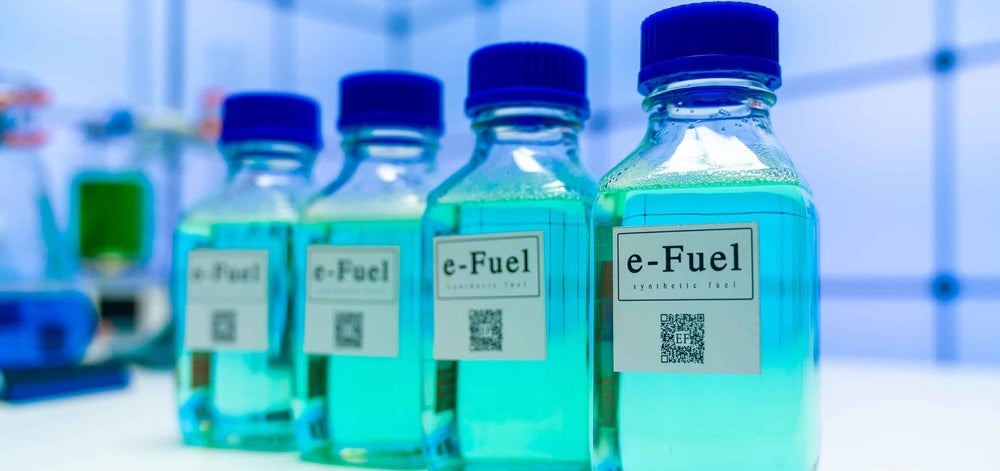
Cars powered by e-fuel will emit almost five times as much CO2 as electric vehicles if the EU waters down plans to require them to be carbon neutral, according to new analysis by Transport & Environment (T&E) .
All new cars sold in the EU from 2035 must emit zero CO2 emissions at the tailpipe, but the bloc is set to make an exemption for cars running on synthetic fuel. While the EU Commission says only e-fuels that are 100% carbon neutral can qualify for the loophole, the oil industry wants that criteria weakened.

Transport & Environment (T&E) calculated the ‘well-to-wheel’ CO2 emissions of e-fuels – the total emissions required to produce, distribute and use the fuel. The analysis shows that e-petrol cars would emit 61 grams of CO2 equivalent per km in 2035 if lawmakers apply the weaker 70% carbon neutral criteria, which is required by the current EU renewable energy law.
This contrasts with electric vehicles, which would only emit 13 gCO2/km when charged with electricity from the average EU grid from 2035. To be fully carbon neutral, e-fuels would need to be made using captured CO2 emissions that balance out the carbon dioxide released when the fuel is burned in an engine.
Alex Keynes, cars policy manager at T&E, said: “The European Commission has said e-fuels need to be carbon neutral to escape the ban on new polluting cars after 2035. For years the e-fuels lobby told us how clean their fuels are, so it is incomprehensible why they could not meet the criteria as proposed. It’s up to EU governments to stand by the Commission’s carbon neutral requirement.”
While synthetic fuels would be carbon neutral under the Commission’s plan, they will still emit air pollutants, notably toxic NO2 and carcinogenic particles, when burned in combustion engines. T&E tests have shown that cars powered by e-fuel emit as much nitrogen oxides (NOx) as fossil fuel engines (around 22 mg/km) and much more carbon monoxide and ammonia, doing nothing to alleviate the air quality problems in our cities.
According to T&E, E-fuels are also expensive to produce, and filling up cars on synthetic petrol will cost drivers far more than running a battery electric vehicle or even a car on fossil petrol. Producing e-fuels is also far less efficient than powering electric vehicles. Supplying just a small proportion of new cars with e-fuels instead of electrifying them would require significantly more renewable electricity generation in Europe.
The Commission has asked member states for feedback on its proposal to allow only 100% carbon neutral e-fuels in new cars after 2035. EU governments are expected to take a final decision on the criteria before the end of the year.
How well do you really know your competitors?
Access the most comprehensive Company Profiles on the market, powered by GlobalData. Save hours of research. Gain competitive edge.

Thank you!
Your download email will arrive shortly
Not ready to buy yet? Download a free sample
We are confident about the unique quality of our Company Profiles. However, we want you to make the most beneficial decision for your business, so we offer a free sample that you can download by submitting the below form
By GlobalData






